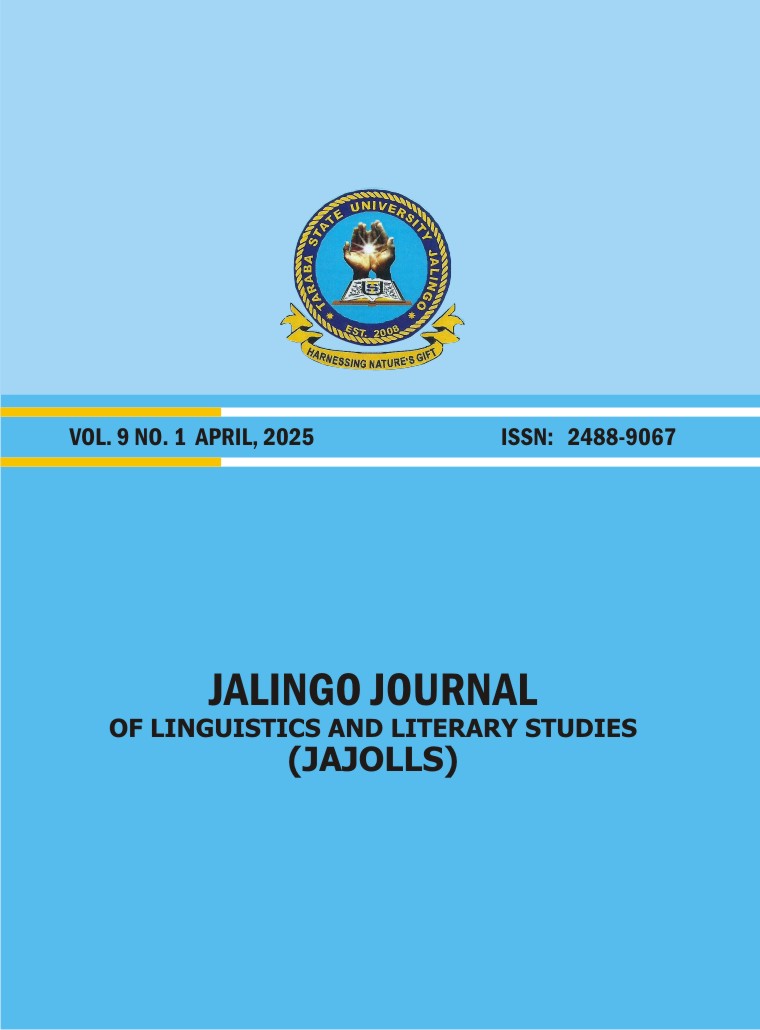Stylo-Discourse Analysis of Linguistic Expression of Religious Identity and Ideology in Selected Postcolonial Nigerian Literature
Keywords:
Religion, Identity, Ideology, Violence, Postcolonial Nigerian LiteratureAbstract
The postcolonial Nigerian nation has suffered calamitous losses from religious conflicts. Consequently, some of Nigeria‘s 21st Century writers have tried in their works to present a situation in which groups use language to construct individual and collective identity and ideology, legitimize their actions, and justify acts of violence against others. The grammatical resource of mood and transitivity employed by the writers enables the readers/critics to access and appraise individual and group experiences, and intergroup relations in social interactions. The resources of language enable us to perceive how individuals and groups relate to one another in social activities and implicitly or explicitly sustain ideologies that support the structures of oppression and violence. Therefore, working within the tenets of critical stylistics and critical discourse analysis (CDA), this study aims at exposing the motives that underlie the expression of religious identity and ideology in Chimamanda Ngozi Adichie‘s Purple Hibiscus (PH henceforth), Chidubem Iweka‘s the Ancient Curse (TAC henceforth), and Uwem Akpan‘s Say You‘re One of Them (SYOT henceforth) and their implications for national stability and development. The data reveal how the sociopolitical climate in postcolonial Nigeria breeds a culture of hatred, intolerance, violence, exclusion, and curtailment of individual and group rights in the name of religion, and how these acts are expressed in diverse discourse-grammatical patterns.

